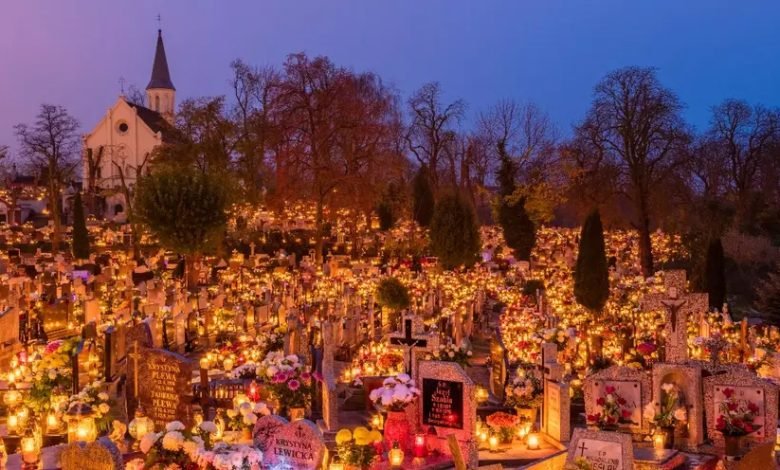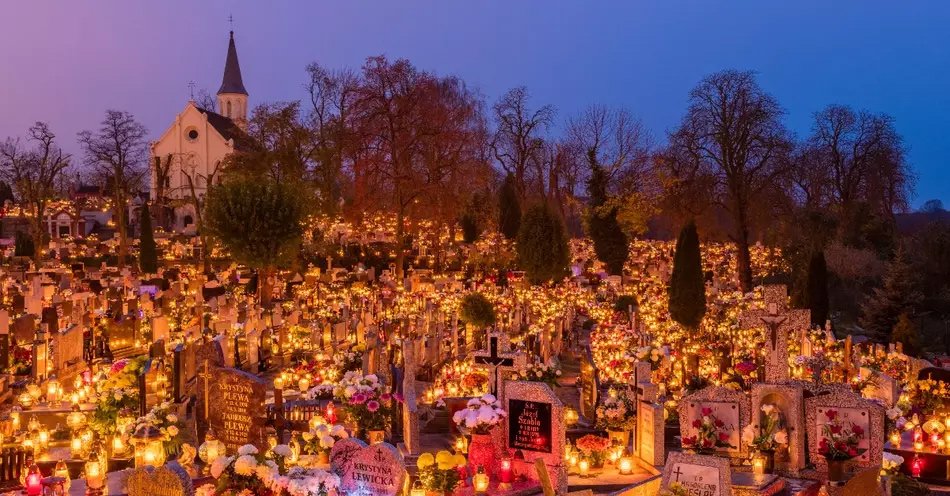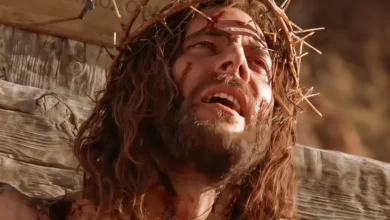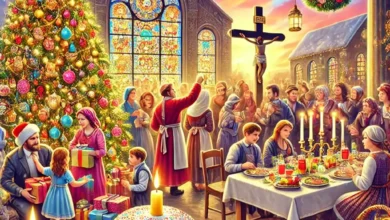
All Souls’ Day: Christian Origin, Traditions and Prayer
All Souls’ Day, also known as Remembrance of All Faithful Departed and Day of the Dead, is a celebration to pray for and honor the spirits of those who have passed away. Those who honor the traditions of All Souls’ Day often remember their departed loved ones in various ways on November 2nd. Beliefs and customs related to All Souls’ Day have a wide range among different branches of Christianity.
The root of the Feast of All Souls
Setting aside special days to intercede with selected groups of the dead is a long tradition in Christianity. The foundation of the Feast of All Souls for public intercession on 2 November is attributed to Edilo, a monk of Cluny who died in 1048. The date of celebration of this feast, which practically became universal until the end of the 13th century, was determined after the Feast of All Saints. After celebrating the feast of all the members of the church who are supposed to be in heaven, on the next day, the body of Christ is changed to remember and pray for those souls who are suffering in purgatory. (The concept of purgatory in Christianity refers to a place for temporary purification of souls before entering heaven.)
In contemporary Western Christianity, the annual celebration takes place on November 2 and is part of the All Saints season, which includes All Saints’ Day (November 1) and its night, Halloween (October 31).
All Souls’ Day: Meaning and Traditions
In the Catholic Church:
In Catholicism, the term “wise” refers exclusively to baptized Catholics. “All Souls” is in honor of the Church’s penance for souls in purgatory, while “All Saints” is in honor of the Church’s victory over the saints in heaven.
In the teachings of the Catholic Church of the West, this day is called “the commemoration of all the faithful departed”.
According to the Encyclopaedia Britannica, “All Souls’ Day in Roman Catholicism is a day for commemorating all the faithful departed, baptized Christians whose souls are thought to be in purgatory for lesser sins… Roman Catholic doctrine holds that the prayers of the faithful On earth, it helps to cleanse these souls to meet God in heaven, and this day is dedicated to prayer and remembrance.
In addition, there is an Orthodox ceremony called “General Panikhida”, which the priest conducts at least seven times a year, on Saturdays dedicated to the dead. Every Saturday is traditionally a day to pray for the dead because Christ rested in the tomb on Saturday. But these Saturdays are specially chosen to commemorate the dead:
Saturday of meat-eating week (the second Saturday before Lent)
Second Saturday during Great Lent
Third Saturday during Great Lent
Fourth Saturday during Great Lent
Radonitsa (Monday or Tuesday after Thomas Sunday)
Saturday before Pentecost
Saturday of Demetrius (Saturday before the Feast of St. Demetrius of Thessaloniki)
In the Orthodox Church, there is not just one Feast of All Souls, but seven, in addition to the faithful commemoration of each family at the graves of deceased loved ones.
Lutheran Church: During Luther’s lifetime, All Souls’ Day was widely celebrated in Saxony, although the Roman Catholic meaning of the day was abandoned. Ecclesiastically in the Lutheran Church, this day merged with All Saints’ Day and is often seen as a continuation of All Saints’ Day, with many Lutherans still attending services on all Saints’ Days, including All Souls’ Day. They decorate the graves.
Anglican Church: In the Church of England, this day is called “Commemoration of the Faithful Departed” and is an optional holiday. Anglicans view All Souls’ Day as an extension of All Saints’ Day and serves to “commemorate the departed” in relation to the divine doctrines of the resurrection of the body and the communion of saints.
Methodist Church: In the Methodist Church, all faithful Christians are considered saints. Therefore, on the Feast of All Saints, the universal Church as well as the departed members of a local congregation are honored and commemorated. In Methodist congregations that observe the service on All Souls’ Day, this practice is seen as an extension of All Saints’ Day to “remember our departed loved ones” in their worship on this day.
Common Traditions of All Souls’ Day: Common traditions of All Souls’ Day show general perceptions associated with purgatory. For example, ringing bells for the dead was considered to comfort them in their purgatory, while giving soul cakes to the poor was meant to buy the dead some respite from the misery of purgatory. Similarly, lighting candles meant shining a light for the dead spirits who were fading into the darkness. From these traditions, the traditions of “going to beg for the soul” and baking certain types of bread or cakes were formed.
Saturday of the Dead: Saturday of the Dead (or Soul Saturday) is a day set aside to commemorate the dead in the ecclesiastical year of the Eastern Orthodox and Byzantine Catholic Churches. Saturday is traditionally a day to pray for the dead, because Christ died in the tomb on Saturday.
These days are dedicated to praying for deceased relatives and other people of faith who are not known as saints respectively. Special hymns have been added to the divine worship in these days to honor the departed. Often a memorial service is held after the Saturday morning mass or after the evening mass on Friday, for which koliwa (a dish made from boiled wheat or rice grains and honey) is prepared and placed on the panikhida table. After the ceremony, the priest blesses Koliva. Then it is eaten by everyone as a ritual.

Eid prayer for all souls
This prayer reminds us that those who die in faith live in Christ.
O Eternal God and Father,
You are not the god of the dead, but the god of the living.
and all who trust in you,
Those who rest in their tombs underground,
They live in you.
Dear Father, have mercy on us.
Let us not be afraid of the power and sting of death.
But keep us in true faith in your dear child,
He is the way, the truth and the life.
Confirm us with your Holy Spirit,
And grant us a clear conscience.
In order to live our Christian life,
And finally sleep in peace and happiness
When we leave this valley of tears,
And rest in peace until you open our graves
and wake us up with the sound of the last trumpet;
Through Jesus Christ, our Lord.
Amen
Today in the article : All Souls’ Day: Christian Origin, Traditions and Prayer We reviewed useful information about the Bible and the way of Jesus. If you wish, you can view other articles of Ali Vahidi about Christianity





